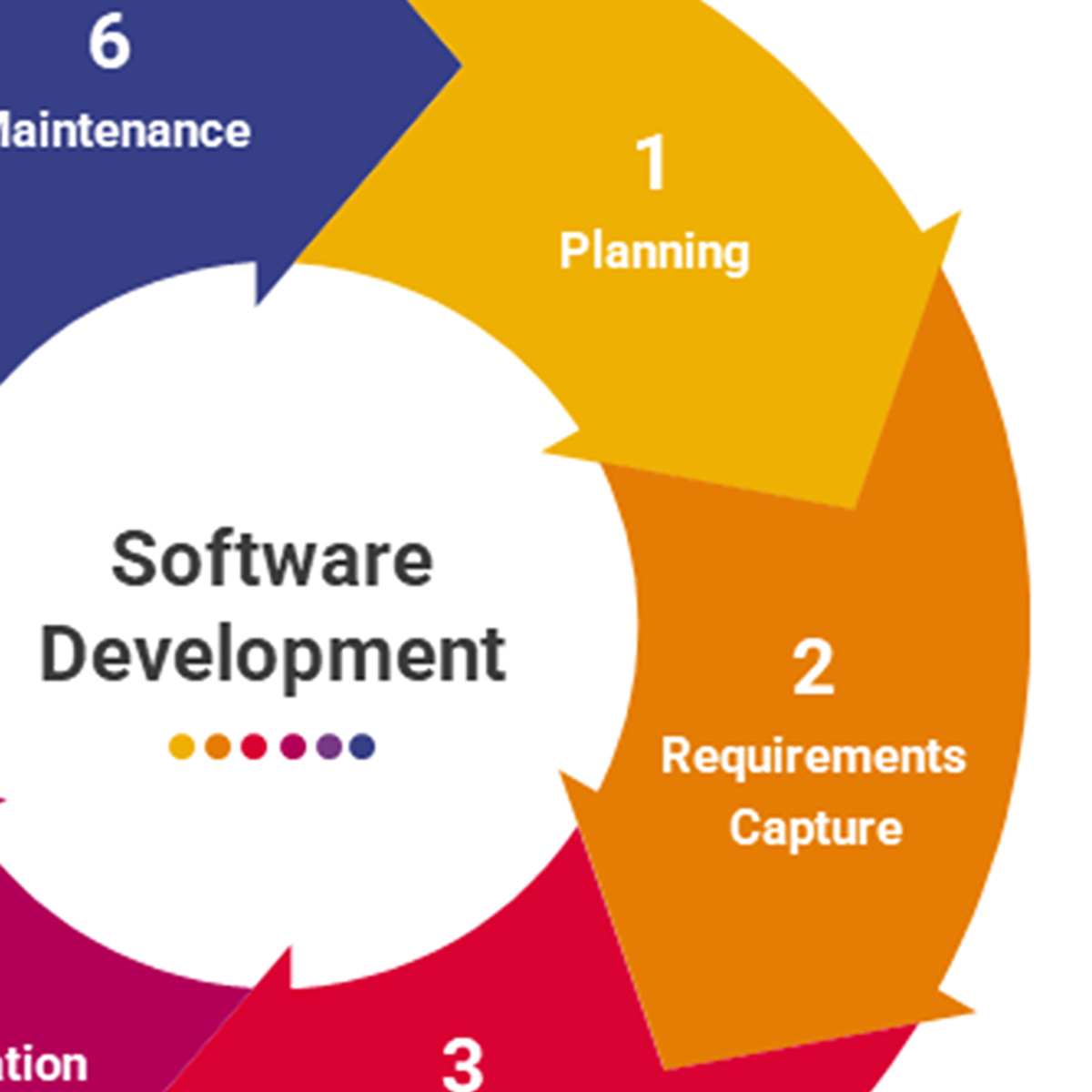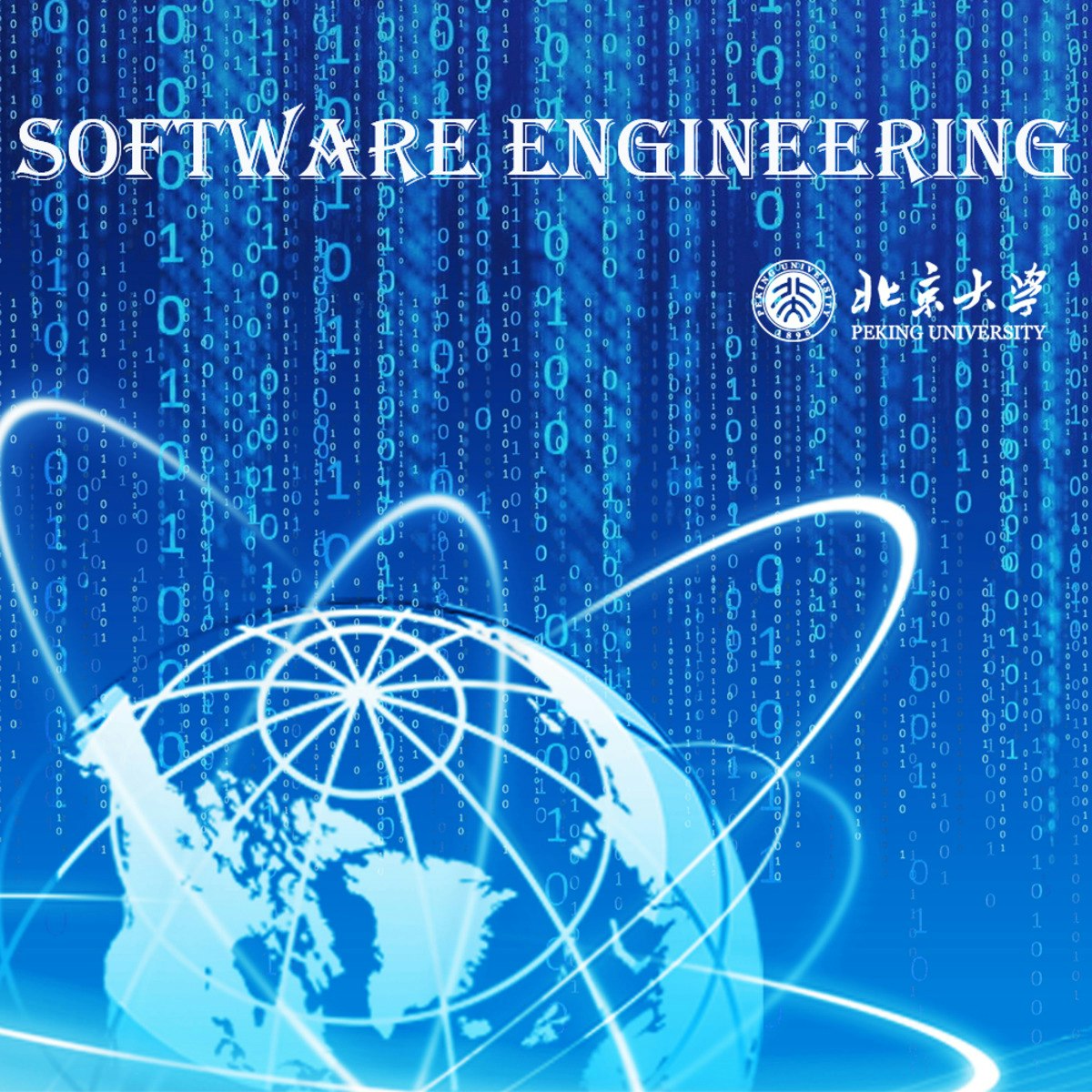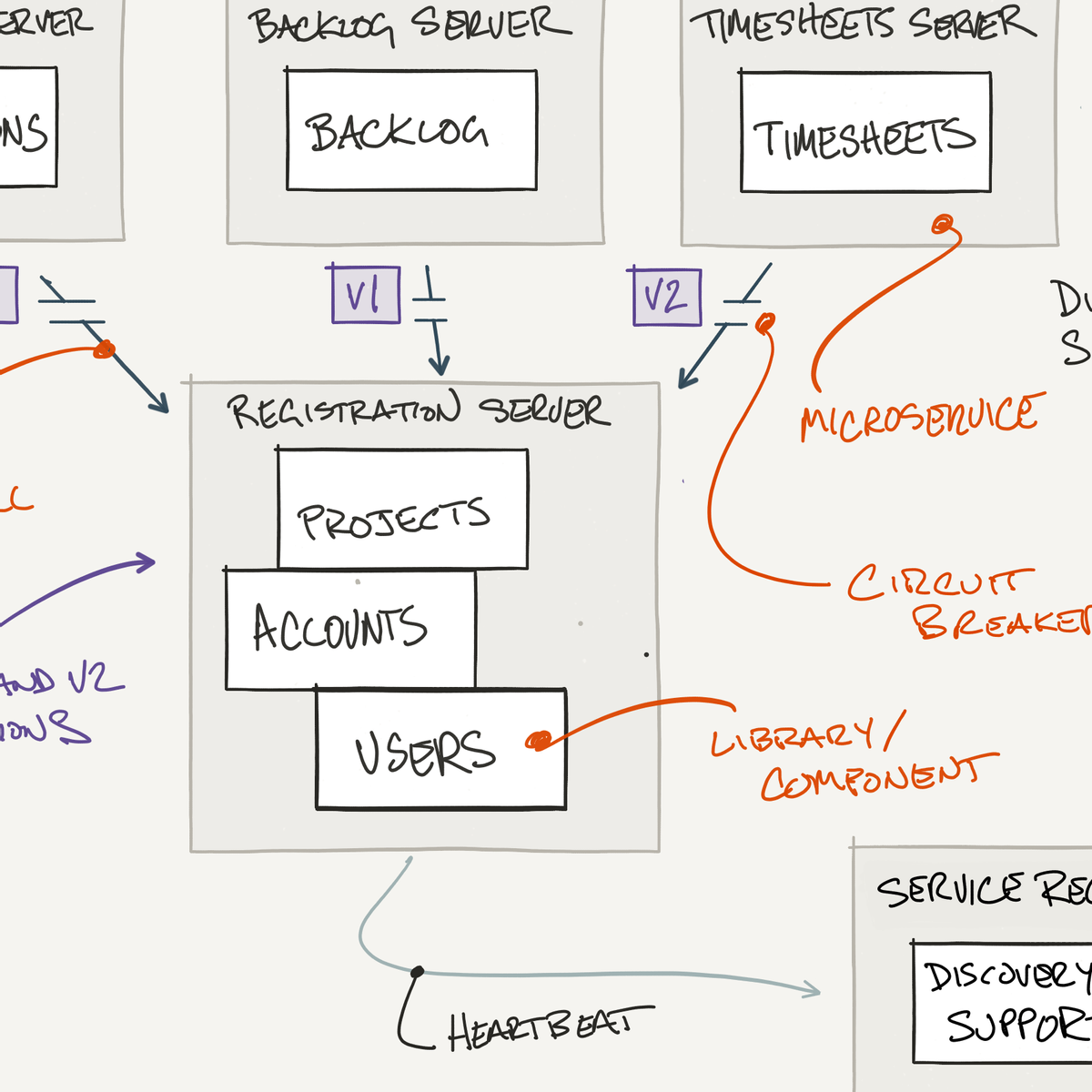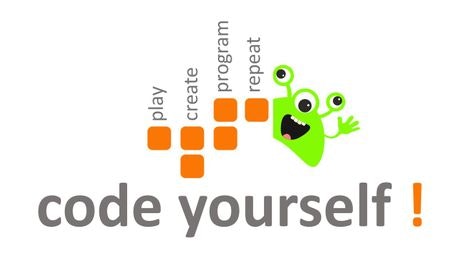Software Engineering
Comprehensive Guide to Software Engineering
Software engineering is the application of engineering principles to the design, development, testing, deployment, and maintenance of software. It's a systematic and disciplined approach to creating software systems that are reliable, efficient, and meet the needs of users. In a world increasingly reliant on technology, software engineering stands as a cornerstone of innovation and progress across nearly every industry.
Working in software engineering can be an engaging and exciting path. It offers the opportunity to solve complex problems, build innovative products that can impact millions of people, and continuously learn in a rapidly evolving field. Whether it's developing the next generation of mobile applications, designing sophisticated enterprise software, or contributing to cutting-edge advancements in areas like artificial intelligence and cloud computing, software engineers are at forefront of technological advancement.
Core Principles of Software Engineering
Understanding the fundamental principles of software engineering is crucial for anyone looking to enter or advance in this field. These principles provide a framework for building robust, scalable, and maintainable software.
The Software Development Lifecycle (SDLC)
The Software Development Lifecycle (SDLC) is a structured process that guides software development projects from inception to completion and beyond. It provides a clear framework for planning, building, and maintaining software, ensuring that development is systematic and meets quality standards. The goal of the SDLC is to minimize project risks through forward planning so that software meets customer expectations during production and beyond. This methodology outlines a series of steps that divide the software development process into tasks you can assign, complete, and measure.
While the specific details can vary between different teams and methodologies, common SDLC phases include planning, requirements gathering and analysis, system design, implementation (coding), testing, deployment, and maintenance. The planning phase involves defining project goals, scope, and resources. Requirements gathering focuses on understanding what the software needs to do from the user's and business's perspective. System design involves creating the architectural blueprint of the software. Implementation is the actual coding of the software. Testing ensures the software functions as intended and is free of critical defects. Deployment involves releasing the software to users. Finally, maintenance includes ongoing support, bug fixes, and updates to the software after release.
Following a structured SDLC offers numerous benefits, including increased visibility into the development process for all stakeholders, more efficient estimation and scheduling, improved risk management, and ultimately, higher customer satisfaction due to systematic software delivery.
For those looking to understand the practical application of these principles, several online courses offer in-depth knowledge. These courses can help build a solid foundation in software engineering practices.
Modularity, Abstraction, and Reusability
Modularity, abstraction, and reusability are cornerstone principles in software engineering that contribute significantly to creating high-quality, maintainable, and scalable systems.
Modularity involves breaking down a complex software system into smaller, independent, and interchangeable components called modules. Each module is designed to perform a specific function and has a well-defined interface for interacting with other modules. This separation of concerns makes the system easier to understand, develop, test, and maintain. Changes made to one module are less likely to impact other parts of the system, which simplifies debugging and allows for parallel development by different team members.
Abstraction is the process of simplifying complex reality by modeling classes appropriate to the problem, and working at the most appropriate level of inheritance for a given aspect of the problem. In software engineering, it means hiding the complex implementation details of a module and exposing only the essential features or functionalities to the user or other parts of the system. This allows developers to focus on what a component does rather than how it does it, reducing cognitive load and making the system easier to work with.
Reusability is the ability to use existing software components (modules, functions, classes, etc.) in new applications or in different parts of the same application with little or no modification. Both modularity and abstraction contribute to reusability. By creating well-defined, independent modules with clear interfaces, developers can build a library of reusable components, which can significantly speed up development, reduce costs, and improve the overall quality and consistency of software.
These principles are not just theoretical concepts; they are actively applied in modern software development to manage complexity and improve efficiency. Understanding and applying them is key to becoming an effective software engineer.
Testing, Debugging, and Maintenance
Testing, debugging, and maintenance are critical phases in the software development lifecycle that ensure the quality, reliability, and longevity of software applications. They are ongoing processes that often overlap and continue throughout the software's lifespan.
Testing is the process of evaluating a software application or system to identify any gaps, errors, or missing requirements versus the actual requirements. The primary goal of testing is to find defects and ensure that the software behaves as expected under various conditions. There are numerous types of testing, including unit testing (testing individual components), integration testing (testing how components work together), system testing (testing the entire system), and acceptance testing (validating that the software meets user needs). Comprehensive testing helps improve software quality, reduce risks, and increase customer satisfaction.
Debugging is the process of finding and resolving defects or bugs in the software. When tests reveal issues or when users report problems, developers engage in debugging to identify the root cause of the error and implement a fix. This often involves analyzing code, using debugging tools to step through program execution, and understanding the interactions between different software components. Effective debugging requires strong analytical and problem-solving skills.
Maintenance encompasses all activities performed after the software is deployed to users. This includes correcting faults (corrective maintenance), adapting the software to changes in the environment (adaptive maintenance), enhancing functionality or performance (perfective maintenance), and preventing future problems (preventive maintenance). Good software design, which often incorporates principles like modularity and abstraction, can significantly ease the maintenance effort. Well-documented and well-tested code also contributes to more efficient maintenance. As software systems evolve and user needs change, ongoing maintenance is essential to ensure the software remains valuable and functional over time.
These books offer valuable insights into writing clean, maintainable, and testable code, which are essential skills for effective testing, debugging, and maintenance.
History and Evolution of Software Engineering
The history of software engineering is a story of continuous evolution, driven by technological advancements and the increasing complexity of software systems. Understanding this journey provides context for current practices and highlights the enduring challenges and innovations in the field.
Milestones from Early Programming to Modern Practices
The origins of software engineering can be traced back to the dawn of electronic computing in the 1940s and 1950s. Initially, software development was often an ad-hoc process, with little distinction between hardware and software design. Programmers wrote code directly in machine language or assembly language, which was a tedious and error-prone task. The term "software engineering" itself began to gain traction in the late 1950s and early 1960s. A pivotal moment came with the NATO Science Committee conferences in 1968 and 1969, which were convened to address the "software crisis"—a period marked by the difficulty of delivering reliable and efficient software on time and within budget. These conferences are often considered the formal start of software engineering as a profession.
The 1970s saw the rise of structured programming, which emphasized logical structures and procedures to make software easier to understand and debug. High-level programming languages like C, Pascal, and Fortran became more prevalent, enabling the development of more complex software. The 1980s and 1990s brought the object-oriented programming (OOP) paradigm to the forefront, with languages like C++ and Java. OOP focused on organizing software around "objects" that encapsulate data and behavior, leading to more modular and reusable code.
The advent of the personal computer in the 1970s and 1980s broadened the audience for software development. The subsequent rise of the internet in the 1990s and 2000s dramatically changed the landscape, leading to the development of web applications and distributed systems. This era also saw the emergence of lightweight or agile methodologies in the early 2000s, emphasizing flexibility, collaboration, and rapid iteration in response to the limitations of more rigid, traditional approaches.
Impact of Hardware Advancements and Open-Source Movements
The evolution of software engineering has been inextricably linked with advancements in computer hardware. As hardware became more powerful, cheaper, and smaller, it enabled the development of increasingly sophisticated and complex software applications. The transition from mainframes to minicomputers, then to personal computers, and now to mobile devices and cloud infrastructure has continuously pushed the boundaries of what software can achieve.
The open-source movement has also had a profound impact on software engineering. The collaborative development model, where source code is made freely available for others to use, modify, and distribute, has fostered innovation and accelerated the development of new technologies. Prominent open-source projects like the Linux operating system, the Apache web server, and countless libraries and frameworks have become foundational components of modern software development. The open-source ethos has encouraged transparency, community-driven development, and the sharing of knowledge, shaping how software is built and maintained today.
Emergence of Methodologies like Agile and DevOps
Traditional software development methodologies, often characterized by a sequential, phased approach (like the Waterfall model), struggled to keep pace with the rapidly changing requirements and fast-paced nature of modern software projects. This led to the emergence of Agile methodologies in the early 2000s. Agile emphasizes iterative development, collaboration between self-organizing cross-functional teams, adaptive planning, and early delivery of working software. Popular Agile frameworks include Scrum and Kanban. The core idea is to embrace change and deliver value to the customer incrementally.
More recently, DevOps has emerged as a cultural and professional movement that stresses communication, collaboration, integration, and automation between software developers (Dev) and IT operations (Ops). The goal of DevOps is to shorten the systems development life cycle and provide continuous delivery with high software quality. It builds upon Agile principles and leverages tools and practices like continuous integration (CI), continuous delivery (CD), and infrastructure as code to enable faster and more reliable software releases. The rise of DevOps reflects the need for organizations to respond quickly to market demands and deliver value to users at an accelerated pace.
Exploring the history and evolution of software engineering can be fascinating. For those interested in diving deeper, these courses can provide additional context and understanding.
Key Concepts and Methodologies
Software engineering is built upon a foundation of key concepts and methodologies that guide how software is designed, developed, and managed. Understanding these is essential for both aspiring and practicing software engineers.
Comparison of Agile, Waterfall, and DevOps
Choosing the right development methodology is crucial for project success. Three prominent approaches are Waterfall, Agile, and DevOps, each with distinct characteristics and best-use cases.
The Waterfall model is a traditional, linear, and sequential approach to software development. It divides the development process into distinct phases, such as requirements, design, implementation, testing, and maintenance. Each phase must be fully completed before the next begins, resembling a waterfall. This model is well-suited for projects with clearly defined, stable requirements and where the technology is well understood. However, its rigidity can be a drawback, as it's difficult and costly to go back and make changes to earlier phases once they are completed.
Agile methodologies emerged as a response to the limitations of Waterfall, particularly for projects with evolving requirements or a need for rapid delivery. Agile is an iterative and incremental approach that emphasizes flexibility, customer collaboration, and continuous improvement. Instead of a single, long development cycle, Agile projects are broken down into smaller, manageable iterations or sprints, each resulting in a potentially shippable product increment. Popular Agile frameworks include Scrum and Kanban. Agile is well-suited for projects where requirements are expected to change or are not fully known at the outset, allowing teams to adapt and respond to feedback quickly.
DevOps is a set of practices that combines software development (Dev) and IT operations (Ops). Its main goal is to shorten the systems development life cycle and provide continuous delivery with high software quality. DevOps builds upon Agile principles by extending them to the entire delivery pipeline, including integration, testing, deployment, and monitoring. It emphasizes automation, collaboration, and communication between development and operations teams to enable faster, more frequent, and more reliable software releases. DevOps is particularly beneficial for organizations looking to accelerate their delivery speed and improve the stability of their applications in production.
Understanding the nuances of these methodologies allows teams to select the approach that best fits their project's context, goals, and constraints.
Version Control Systems and CI/CD Pipelines
Version control systems (VCS) and Continuous Integration/Continuous Delivery (CI/CD) pipelines are fundamental tools and practices in modern software development, enabling teams to manage code changes effectively and automate the software delivery process.
A Version Control System is a software tool that helps developers manage changes to source code over time. It tracks every modification, allowing developers to revert to previous versions, compare changes, and collaborate on code without overwriting each other's work. Git is currently the most popular distributed version control system. VCS is crucial for team collaboration, maintaining a history of project evolution, and ensuring code integrity.
CI/CD pipelines are a series of automated workflows that help development and operations teams build, test, and deploy software releases more frequently and reliably.
- Continuous Integration (CI) is the practice of regularly merging code changes from multiple developers into a central repository. Each integration triggers an automated build and test process, allowing teams to detect and fix integration issues early.
- Continuous Delivery (CD) extends CI by automating the release of software to various environments, such as testing and production. The goal is to ensure that the software can be reliably released at any time.
- Continuous Deployment is a further step where every change that passes all automated tests is automatically deployed to production.
Together, VCS and CI/CD pipelines streamline the development process, improve code quality, accelerate delivery, and enable teams to respond more quickly to user feedback and market demands.
These courses offer practical knowledge on implementing and using these essential tools and practices.
Design Patterns and Architectural Styles
Design patterns and architectural styles are crucial concepts in software engineering that provide proven solutions to common problems and guide the overall structure of software systems.
Design Patterns are general, reusable solutions to commonly occurring problems within a given context in software design. They are not finished designs that can be transformed directly into code; rather, they are descriptions or templates for how to solve a problem that can be used in many different situations. Design patterns help improve code reusability, maintainability, and communication among developers by providing a common vocabulary and a set of well-understood solutions. Examples include the Singleton pattern, Factory pattern, and Observer pattern. The seminal book "Design Patterns: Elements of Reusable Object-Oriented Software" by the "Gang of Four" (Gamma, Helm, Johnson, Vlissides) is a classic reference in this area.
Architectural Styles (also known as architectural patterns) define the high-level organization of a software system. They describe the types of components and connectors used and the constraints on how they can be combined. Architectural styles provide a framework for designing the overall structure of an application and influence its quality attributes, such as performance, scalability, and modifiability. Common architectural styles include:
- Layered Architecture (N-Tier): Organizes the system into layers, each with a specific responsibility (e.g., presentation, business logic, data access).
- Client-Server: Separates components into clients (which request services) and servers (which provide services).
- Microservices Architecture: Structures an application as a collection of small, independent, and loosely coupled services.
- Event-Driven Architecture (EDA): System components communicate through the production, detection, and consumption of events.
- Model-View-Controller (MVC): Separates the application into three interconnected components: the model (data and business logic), the view (user interface), and the controller (handles user input and interacts with the model and view).
Understanding and applying appropriate design patterns and architectural styles can lead to more robust, flexible, and maintainable software systems. It enables developers to build upon the collective experience of the software engineering community and avoid reinventing solutions to known problems.
These resources can help you learn more about designing robust software systems.
Formal Education Pathways
For many aspiring software engineers, a formal education provides a structured and comprehensive foundation in the field. Universities and colleges offer a range of programs designed to equip students with the necessary theoretical knowledge and practical skills.
Undergraduate and Graduate Degree Structures
A common starting point for a career in software engineering is an undergraduate degree, typically a Bachelor of Science (B.S.) in Software Engineering, Computer Science, or a closely related field like Computer Engineering. These programs usually span three to four years and cover a broad range of fundamental topics.
For those seeking to deepen their expertise, pursue research, or specialize in a particular area, a graduate degree can be a valuable next step. Master of Science (M.S.) programs in Software Engineering or Computer Science often offer opportunities for more advanced coursework and project-based learning. These programs might focus on areas like software architecture, cybersecurity, artificial intelligence, or data science. A Doctor of Philosophy (Ph.D.) is typically pursued by individuals interested in academic research, teaching at the university level, or leading cutting-edge research in industry.
The structure of these degree programs often involves a combination of lectures, laboratory sessions, projects, and sometimes internships or co-op experiences, providing both theoretical understanding and hands-on practice.
Core Coursework (Algorithms, Systems Design)
Core coursework in a software engineering or computer science undergraduate program lays the critical groundwork for a successful career. Some of the most essential subjects include:
- Data Structures and Algorithms: This is a cornerstone of computer science and software engineering. It involves learning how to organize data efficiently (e.g., arrays, linked lists, trees, graphs, hash tables) and how to design algorithms to solve computational problems effectively (e.g., searching, sorting, graph traversal). A strong understanding of algorithms is crucial for writing efficient and scalable code.
- Programming Fundamentals: Courses in one or more programming languages (such as Java, Python, C++) teach the syntax, semantics, and paradigms of programming, including object-oriented programming, functional programming, and procedural programming.
- Software Design and Architecture: These courses focus on the principles and practices for designing robust, maintainable, and scalable software systems. Topics often include design patterns, architectural styles, UML (Unified Modeling Language), and software modeling.
- Operating Systems: Understanding how operating systems manage computer hardware and software resources (e.g., processes, memory, file systems) is essential for developing efficient applications.
- Computer Networks: This covers the principles of data communication, network protocols (e.g., TCP/IP), and network architectures, which is vital for developing distributed and web-based applications.
- Database Systems: Students learn about database design, data modeling, query languages (like SQL), and database management systems.
- Software Testing and Quality Assurance: These courses introduce methodologies and techniques for verifying and validating software to ensure it meets requirements and is free of defects.
- Discrete Mathematics and Logic: Provides the mathematical foundations necessary for computer science, including topics like set theory, graph theory, and formal logic.
This foundational knowledge is often supplemented by elective courses allowing students to explore specialized areas of interest.
For those looking to solidify their understanding of core concepts, these courses can be beneficial.
Research Opportunities in Academia
For students with a strong interest in pushing the boundaries of knowledge in software engineering, academia offers numerous research opportunities. These are typically most prominent at the graduate level (Master's and Ph.D. programs) but can sometimes be available to motivated undergraduate students as well.
Research areas in software engineering are diverse and constantly evolving. They can include topics such as:
- Software Process and Methodologies: Investigating new ways to improve the software development lifecycle, agile practices, and DevOps.
- Software Quality and Reliability: Developing new techniques for software testing, verification, validation, and fault tolerance.
- Artificial Intelligence in Software Engineering (AISE): Applying AI and machine learning techniques to automate or assist in various software engineering tasks, such as code generation, bug detection, and requirements analysis.
- Cybersecurity and Software Security: Researching methods to build more secure software and protect systems from vulnerabilities and attacks.
- Empirical Software Engineering: Using empirical methods (e.g., experiments, case studies, surveys) to study software engineering phenomena and validate new tools and techniques.
- Human Aspects of Software Engineering: Studying how developers work, collaborate, and interact with tools and processes.
- Software Maintenance and Evolution: Developing techniques to better understand, maintain, and evolve large and complex legacy systems.
Engaging in research can involve working closely with faculty members, publishing papers in academic conferences and journals, and contributing to the advancement of the field. It's an excellent path for those who are passionate about discovery and innovation.
Self-Directed and Online Learning
While formal education provides a strong foundation, the path to becoming a software engineer is also accessible through self-directed learning and online resources. The abundance of high-quality online courses, tutorials, and communities has made it more feasible than ever to acquire software engineering skills independently.
OpenCourser itself is a testament to the power of online learning, offering a vast catalog of courses to help learners at every stage. With features like detailed course information, user reviews, and tools to save and compare courses, OpenCourser empowers individuals to find the programming courses that best suit their learning style and career goals. You can also explore broader categories like Computer Science or more specialized areas within Technology.
Feasibility of Self-Taught Pathways
Becoming a self-taught software engineer is a challenging yet achievable goal. It requires discipline, persistence, and a genuine passion for learning and problem-solving. Many successful software engineers have forged their careers through non-traditional paths, leveraging online resources, personal projects, and networking.
The key to a successful self-taught journey lies in creating a structured learning plan, setting realistic goals, and consistently practicing coding. Online platforms offer a wealth of courses covering everything from programming fundamentals to advanced software engineering concepts. Supplementing these courses with reading books, following industry blogs, and engaging in online developer communities can provide a well-rounded education. While a formal degree can offer credibility and a structured curriculum, a strong portfolio of projects and demonstrated skills can be equally, if not more, compelling to potential employers.
For those considering a career change or looking to enter the tech industry without a traditional computer science background, the self-taught route offers flexibility and can be a cost-effective way to gain in-demand skills. However, it's important to be realistic about the effort required and to actively seek opportunities to validate your learning, such as contributing to open-source projects or taking on freelance work.
These courses are excellent starting points for individuals looking to embark on a self-taught software engineering journey.
Project-Based Learning Strategies
Project-based learning is one of the most effective strategies for mastering software engineering skills, especially for self-taught individuals. Building real-world projects allows you to apply theoretical knowledge, encounter practical challenges, and develop a tangible portfolio to showcase your abilities to potential employers.
Start with small, manageable projects that align with your current skill level and gradually increase the complexity as you learn. For example, after learning the basics of a programming language, you could build a simple command-line application, then move on to a web application with a database backend, or a mobile app. The process of defining project requirements, designing the architecture, writing the code, testing, and debugging provides invaluable hands-on experience.
Contributing to open-source projects is another excellent way to learn and collaborate with experienced developers. It allows you to see how larger software systems are built, understand coding standards and best practices, and get feedback on your contributions. Actively seek out projects that interest you and start by tackling small bugs or features. Platforms like GitHub host a vast number of open-source projects across various domains.
Remember to document your projects well, explaining the problem you solved, the technologies you used, and the challenges you overcame. A well-curated portfolio of diverse projects can significantly enhance your job prospects.
Consider these courses that emphasize practical application and project building.
Certifications and Portfolio Development
For self-taught individuals and even those with formal degrees, certifications and a strong portfolio are crucial for demonstrating skills and credibility to potential employers. They serve as tangible proof of your knowledge and ability to deliver working software.
Numerous organizations and technology providers offer certifications in various software engineering domains, such as specific programming languages (e.g., Java, Python), cloud platforms (e.g., AWS, Azure, Google Cloud), cybersecurity, or agile methodologies. While certifications alone may not guarantee a job, they can help your resume stand out and validate your expertise in particular areas. When choosing certifications, focus on those that are well-recognized in the industry and align with your career goals. OpenCourser's Learner's Guide offers articles on how to approach certifications, including how to earn them and add them to your professional profiles.
A compelling portfolio is arguably even more important than certifications. Your portfolio should showcase a collection of your best projects, demonstrating your technical skills, problem-solving abilities, and creativity. Include a variety of projects if possible, highlighting different technologies and complexities. For each project, provide a clear description, links to live demos or code repositories (e.g., on GitHub), and explain your role and contributions. A well-crafted portfolio allows employers to see your work firsthand and assess your practical capabilities. Ensure your portfolio is easily accessible, perhaps through a personal website or a platform like LinkedIn.
These resources can assist in developing in-demand skills and building a strong portfolio.
Career Progression in Software Engineering
A career in software engineering offers diverse paths for growth and advancement. Understanding the typical trajectory, the importance of continuous learning, and market dynamics can help individuals navigate their careers effectively.
Entry-Level Roles vs. Senior Positions
The journey in software engineering typically begins with an entry-level role, often titled Junior Software Engineer, Associate Software Engineer, or Software Developer. In these positions, individuals usually work under the guidance of more experienced engineers, focusing on well-defined tasks such as writing and testing code for specific features or modules, debugging existing code, and learning the team's development processes and codebase. The emphasis is on building foundational technical skills, understanding software development best practices, and contributing to team projects.
As engineers gain experience and demonstrate proficiency, they progress to mid-level roles (e.g., Software Engineer, Software Developer II). At this stage, they are expected to take on more complex tasks, work more independently, and contribute to design discussions. They may also start mentoring junior engineers.
Senior-level positions (e.g., Senior Software Engineer, Lead Software Engineer, Staff Engineer, Principal Engineer) involve a higher degree of responsibility and technical expertise. Senior engineers are often responsible for designing and architecting complex systems, making critical technical decisions, leading projects, and mentoring other team members. They are expected to have a deep understanding of their domain, be able to solve challenging technical problems, and contribute to the team's technical strategy. Some senior engineers may choose to specialize in a particular technical area (e.g., backend systems, mobile development, machine learning), while others may move into technical leadership or management roles.
Beyond senior individual contributor roles, career paths can diverge into engineering management (e.g., Engineering Manager, Director of Engineering), where the focus shifts to leading teams, managing projects, and developing people, or into more specialized architectural roles (e.g., Software Architect, Solutions Architect), where the focus is on high-level system design and technical strategy.
If you're aiming for leadership, this course could be a good starting point.
These are some of the common career paths in software engineering that you might explore.
Internships, Apprenticeships, and Networking
Gaining practical experience and building a professional network are crucial for launching and advancing a career in software engineering. Internships, apprenticeships, and active networking play vital roles in this process.
Internships provide students or career changers with real-world experience in a professional software development environment. They offer opportunities to work on actual projects, learn from experienced engineers, understand industry practices, and apply academic knowledge to practical problems. A successful internship can often lead to a full-time job offer and is a valuable addition to a resume.
Apprenticeships are another pathway, particularly for those without a traditional four-year degree. These programs typically combine on-the-job training with structured learning, allowing individuals to earn while they learn and develop the skills needed for a software engineering role. Apprenticeships can be an excellent way to gain practical experience and enter the tech industry.
Networking is the process of building and maintaining professional relationships. Attending industry conferences, meetups, hackathons, and online forums can help you connect with other software engineers, learn about new technologies and job opportunities, and gain insights into the industry. Building a strong professional network can provide mentorship, career advice, and potential job referrals. Platforms like LinkedIn are also valuable tools for professional networking.
Actively seeking out these opportunities can significantly enhance your career prospects and provide a strong foundation for growth in the field of software engineering.
This course can help you prepare for the often-challenging technical interviews.
Salary Trends and Global Market Demand
Software engineering consistently ranks as a high-demand and well-compensated profession globally. According to the U.S. Bureau of Labor Statistics (BLS), employment for software developers, quality assurance analysts, and testers is projected to grow significantly faster than the average for all occupations. For example, one projection estimates a 25% growth from 2022 to 2032. This translates to a large number of new job openings each year.
Salaries for software engineers vary based on factors such as experience level, location, industry, company size, and specific skill set. Generally, software engineers earn competitive salaries, with significant potential for growth as they gain experience and take on more senior roles. For instance, the median annual wage for software developers in the U.S. has been reported to be well over $100,000, with top earners and those in specialized roles like engineering management or site reliability engineering potentially earning considerably more. Some sources indicate average salaries for software engineers in the U.S. around $147,524 per year.
The demand for software engineers is driven by the increasing reliance on technology across all industries, including computer systems design, software publishing, finance, manufacturing, and healthcare. Emerging fields like artificial intelligence, machine learning, cloud computing, cybersecurity, and mobile app development continue to fuel this demand. While the job market can experience cyclical shifts, the long-term trajectory for software engineering careers remains strong. Tech hiring is also diversifying geographically, moving beyond traditional tech hubs.
It's worth noting that the job market can be competitive, especially for entry-level positions. Factors like economic conditions and industry-specific trends, such as the rise of AI-powered coding tools, can influence hiring dynamics. However, engineers with strong foundational skills, adaptability, and expertise in in-demand areas are generally well-positioned for career success. For the latest salary data and market trends, resources like the U.S. Bureau of Labor Statistics Occupational Outlook Handbook and industry salary surveys can provide up-to-date information.
For those considering a career in software engineering, exploring related fields can also be beneficial.
Industry Trends and Challenges
The field of software engineering is dynamic, constantly shaped by technological advancements, evolving work practices, and new challenges. Staying aware of these trends is crucial for software engineers to remain relevant and effective.
AI/ML Integration in Software Development
Artificial Intelligence (AI) and Machine Learning (ML) are profoundly impacting software development, transforming how software is created, tested, and maintained. AI-powered tools are increasingly used to automate repetitive tasks, enhance code quality, and accelerate development cycles.
One significant impact is in automated code generation, where AI tools can assist developers by suggesting code snippets, completing lines of code, or even generating entire functions based on natural language descriptions. This can help reduce development time and allow engineers to focus on more complex problem-solving. AI is also being used for intelligent testing and debugging, where algorithms can automatically generate test cases, predict potential bugs by analyzing code repositories and historical data, and even suggest fixes for common issues. This leads to improved software quality and faster bug resolution.
Furthermore, AI and ML are enhancing project management and decision-making in software development. Predictive analytics can help estimate project timelines more accurately, optimize resource allocation, and identify potential risks early on. AI can also personalize user experiences by analyzing user behavior and preferences to deliver tailored content and features. While AI is automating certain tasks, it's also creating new roles and requiring new skills, such as expertise in AI augmentation, system architecture for AI-driven systems, and managing AI-driven workflows. The development of AI itself also requires skilled data scientists, machine learning engineers, and software developers.
These courses explore the intersection of AI/ML and software development.
You may also be interested in these related topics:
Remote Work and Global Team Collaboration
Remote work and global team collaboration have become increasingly prevalent in the software engineering industry, a trend significantly accelerated by recent global events but also driven by the nature of the work itself. Software development tasks can often be performed from anywhere with a reliable internet connection, making it well-suited for remote arrangements.
Many software engineers report a preference for remote or hybrid work models, citing benefits such as increased flexibility, improved work-life balance, elimination of commuting time, and potential cost savings. Studies have also suggested that remote work can lead to increased productivity for some, due to fewer distractions. For companies, offering remote work can expand their access to a global talent pool, potentially reduce overhead costs associated with office space, and improve employee retention.
However, remote work also presents challenges. Effective communication, maintaining team cohesion, and ensuring seamless collaboration across different time zones require deliberate effort and the right tools. Companies are adopting various strategies to address these challenges, including investing in collaboration platforms, establishing clear communication protocols, and fostering a strong remote work culture. While some companies are emphasizing hybrid models or encouraging a return to the office, remote work remains a significant and likely enduring feature of the software engineering landscape. Current trends suggest a stabilization of remote work, with many companies settling into hybrid models that balance in-office collaboration with remote flexibility.
This course delves into the specifics of managing global software development efforts.
Technical Debt and Scalability Issues
Technical debt is a concept in software development that reflects the implied cost of rework caused by choosing an easy (limited) solution now instead of using a better approach that would take longer. It's like taking out a loan: you get a short-term benefit (faster delivery), but you incur "interest" in the form of increased complexity, reduced maintainability, and higher future development costs. Technical debt can arise from various sources, such as tight deadlines, changing requirements, insufficient testing, poor design choices, or a lack of documentation.
If not managed, technical debt can accumulate and significantly hinder a software project. It can slow down development, make it difficult to add new features or fix bugs, and increase the risk of system failures. Addressing technical debt often involves refactoring code, improving design, writing better documentation, and enhancing test coverage. While it can be tempting to prioritize new features over addressing technical debt, neglecting it for too long can lead to a brittle and unmanageable codebase.
Scalability refers to the ability of a software system to handle a growing amount of work—whether it's an increasing number of users, transactions, or data—without a proportional decrease in performance or increase in cost. Designing for scalability is crucial for applications that are expected to grow over time. Scalability issues can manifest as slow response times, system crashes under heavy load, or an inability to add new capacity efficiently. Addressing scalability often involves careful architectural design, efficient algorithms, effective resource management (e.g., database connections, memory), and potentially leveraging cloud computing services that offer elastic scaling capabilities. Technical debt can exacerbate scalability problems, as poorly structured or inefficient code is often harder to scale.
Managing technical debt and designing for scalability are ongoing challenges in software engineering that require careful planning, good design practices, and a proactive approach to code quality and system architecture.
Consider this book for a deeper understanding of refactoring techniques to manage technical debt.
Ethical Considerations in Software Engineering
As software becomes increasingly integral to all aspects of life, the ethical responsibilities of software engineers take on greater importance. The decisions made during software design and development can have significant societal impacts, making it crucial to consider the ethical implications of their work.
Data Privacy and Security Standards
Software systems often collect, store, and process vast amounts of user data. Protecting this data from unauthorized access, use, or disclosure is a critical ethical and legal responsibility. Software engineers must be knowledgeable about and adhere to relevant data privacy regulations, such as the General Data Protection Regulation (GDPR) in Europe or the California Consumer Privacy Act (CCPA). This involves implementing robust security measures, such as encryption, access controls, and secure authentication mechanisms, to safeguard sensitive information.
Ethical considerations extend beyond mere compliance. Engineers should design systems with privacy in mind from the outset (privacy by design), minimize data collection to what is strictly necessary, be transparent with users about how their data is used, and provide users with control over their personal information. Breaches of data privacy can lead to significant harm to individuals, including financial loss, identity theft, and reputational damage, as well as severe consequences for the organizations responsible.
Bias in Algorithmic Systems
Algorithmic systems, particularly those based on machine learning, are increasingly used to make decisions that affect people's lives, such as in loan applications, hiring processes, criminal justice, and content recommendation. A significant ethical concern is the potential for these systems to exhibit and perpetuate biases, leading to unfair or discriminatory outcomes.
Bias can creep into algorithms in various ways. It can originate from biased data used to train the models, from the design choices made by developers, or from the way algorithms are deployed and interpreted. For example, if historical data reflects societal biases, a machine learning model trained on that data may learn and replicate those biases. It is the responsibility of software engineers and data scientists to be aware of these risks and to actively work to identify, mitigate, and prevent bias in algorithmic systems. This involves careful data collection and preprocessing, using fairness-aware machine learning techniques, rigorous testing for bias, and ensuring transparency and accountability in how these systems are used.
Environmental Impact of Software Infrastructure
The software we create runs on physical hardware, which consumes energy and resources. The rapid growth of data centers, cloud computing, and the proliferation of digital devices contribute to a significant environmental footprint, including energy consumption, carbon emissions, and electronic waste.
Software engineers have a role to play in promoting "green computing" and reducing the environmental impact of software. This can involve designing energy-efficient algorithms and software architectures, optimizing code to reduce resource consumption, promoting the use of renewable energy sources for data centers, and designing software that extends the lifespan of hardware devices rather than encouraging frequent replacements. Ethical considerations in this area involve being mindful of the environmental consequences of technological choices and striving to develop software solutions that are sustainable and environmentally responsible.
This course touches upon the ethical aspects of software development, which are increasingly important.
Frequently Asked Questions (Career Focus)
Embarking on or navigating a career in software engineering often comes with many questions. Here are answers to some of the most common ones, aimed at providing clarity for those exploring this dynamic field.
Is a computer science degree mandatory?
While a formal degree in computer science or software engineering is a common and often preferred pathway into the field, it is not strictly mandatory for all software engineering roles. Many successful software engineers have entered the profession through alternative routes, such as self-teaching, coding bootcamps, or degrees in related STEM fields (e.g., mathematics, physics, engineering) followed by focused software development training.
What matters most to many employers is demonstrated skill and experience. A strong portfolio of projects, contributions to open-source software, relevant certifications, and the ability to pass technical interviews can often overcome the lack of a traditional CS degree. However, a formal degree typically provides a deeper theoretical understanding of computer science fundamentals, which can be beneficial for tackling complex problems and for certain specialized roles, particularly in research or highly theoretical areas. For some larger or more traditional companies, a degree might still be a firm requirement or a strong preference for entry-level positions.
Ultimately, the necessity of a degree can depend on the specific role, company, and your ability to showcase your capabilities through other means. The tech industry is known for valuing skills and practical ability, often above formal credentials alone.
How competitive is the job market?
The job market for software engineers is generally strong, with high demand for skilled professionals across various industries. However, the level of competition can vary significantly based on several factors, including experience level, geographic location, specific skill sets, and prevailing economic conditions.
Entry-level positions can be quite competitive, as many aspiring engineers are vying for these roles. Recent graduates and those transitioning from other careers may face a challenging search. Building a strong portfolio, gaining internship experience, and networking effectively are crucial for standing out.
For experienced software engineers, particularly those with in-demand skills (e.g., AI/ML, cloud computing, cybersecurity, mobile development) and a proven track record, the market is often more favorable. However, even for experienced professionals, the market can fluctuate. Tech industry layoffs, while sometimes a recalibration rather than a complete downturn, can temporarily increase competition. Companies are often selective, seeking candidates who not only possess strong technical skills but also demonstrate problem-solving abilities, adaptability, and good communication.
Staying updated with emerging technologies and continuously honing your skills is essential to remain competitive throughout your career. While headlines about layoffs can seem daunting, many companies continue to hire, particularly for roles requiring specialized expertise and strong performance.
Can non-programmers transition into this field?
Yes, it is definitely possible for individuals without prior programming experience to transition into software engineering. Many people from diverse backgrounds—including fields like marketing, finance, education, arts, and sciences—have successfully made the switch. The journey requires dedication, a willingness to learn, and a systematic approach to acquiring the necessary skills.
The first step is typically to learn the fundamentals of programming. There are numerous resources available, from online courses and coding bootcamps to free tutorials and documentation. Starting with a beginner-friendly language like Python or JavaScript is often recommended. Consistent practice, working on small projects, and gradually tackling more complex problems are key to building proficiency.
Beyond coding, aspiring software engineers should also learn about core software engineering principles, such as data structures, algorithms, version control, testing, and software development methodologies. Building a portfolio of personal projects is crucial to showcase newly acquired skills to potential employers. Networking with other developers, attending meetups, and seeking mentorship can also be very helpful during the transition. While challenging, a career change into software engineering can be incredibly rewarding for those who are passionate about technology and problem-solving.
These courses are designed for beginners and can provide a solid entry point into programming and software development concepts.
What industries hire software engineers?
Software engineers are in demand across a vast array of industries, as technology has become integral to the operations and innovation of nearly every sector. It's no longer just "tech companies" that hire software engineers; the need for software solutions is pervasive.
Some of the major industries that consistently hire software engineers include:
- Technology: This is the most obvious sector, encompassing software publishing companies, hardware manufacturers, internet service providers, cloud computing companies, and firms specializing in areas like AI, cybersecurity, and data science.
- Finance and Insurance: Banks, investment firms, insurance companies, and fintech startups rely heavily on software for trading platforms, risk management systems, mobile banking, customer relationship management (CRM), and data analysis.
- Healthcare: The healthcare industry uses software for electronic health records (EHRs), medical imaging, diagnostic tools, telemedicine, hospital management systems, and pharmaceutical research.
- Retail and E-commerce: Online retailers and traditional brick-and-mortar stores use software for e-commerce platforms, supply chain management, inventory control, point-of-sale (POS) systems, and customer analytics.
- Manufacturing: Modern manufacturing involves software for automation (robotics), computer-aided design (CAD), enterprise resource planning (ERP), quality control, and supply chain optimization.
- Automotive: The automotive industry hires software engineers for in-car infotainment systems, autonomous driving technology, engine control units, and connected car features.
- Aerospace and Defense: This sector requires software for flight control systems, simulation, communication systems, and defense technologies.
- Entertainment and Media: Gaming companies, streaming services, animation studios, and news organizations all employ software engineers for content creation, delivery platforms, and user experience.
- Government and Public Sector: Government agencies at all levels need software for public services, data management, cybersecurity, and infrastructure.
- Education: EdTech companies and educational institutions develop software for learning management systems (LMS), online courses, and educational tools.
This list is not exhaustive, as the applications of software continue to expand. This broad demand provides software engineers with a wide range of career options and the flexibility to work in fields that align with their interests.
How does remote work affect career growth?
Remote work can have both positive and potentially challenging impacts on career growth in software engineering. The effects often depend on the individual, the company culture, and how proactively both parties manage the remote work arrangement.
Potential Benefits for Career Growth:
- Access to Broader Opportunities: Remote work can open up job opportunities with companies located anywhere in the world, allowing engineers to access roles that might not be available locally.
- Focus and Productivity: For some, a remote environment offers fewer distractions, leading to increased focus and productivity, which can contribute to faster skill development and project completion.
- Skill Development: The need to communicate and collaborate effectively in a remote setting can help develop crucial soft skills. Additionally, the flexibility might allow more time for self-directed learning and specialization.
- Work-Life Balance: Improved work-life balance can lead to higher job satisfaction and reduced burnout, which indirectly supports long-term career sustainability and growth.
Potential Challenges for Career Growth:
- Visibility and Networking: In a remote setting, it can sometimes be more challenging to gain visibility with senior leadership and build informal networks within the company, which can be important for mentorship and advancement opportunities.
- Spontaneous Collaboration and Learning: The "water cooler" moments or spontaneous discussions that happen in an office environment, which can lead to learning and new ideas, might be less frequent.
- Onboarding and Mentorship: Effectively onboarding and mentoring junior engineers can require more deliberate effort in a remote setup.
- Proximity Bias: In some organizations, there might be an unconscious bias favoring employees who are physically present in the office when it comes to promotions or high-profile projects, though this is something many companies are actively working to mitigate.
To navigate career growth successfully in a remote environment, engineers should be proactive in communicating their achievements, seeking feedback, building relationships with colleagues and managers, and actively participating in virtual team activities and discussions. Companies, in turn, need to foster inclusive remote work cultures that provide equitable opportunities for growth and development for all employees, regardless of their location.
What are emerging specializations?
Software engineering is a constantly evolving field, with new specializations emerging as technology advances and industry needs change. Staying aware of these trends can help engineers identify areas for future growth and skill development. Some emerging and increasingly prominent specializations include:
- Artificial Intelligence (AI) and Machine Learning (ML) Engineering: This involves designing, building, and deploying AI/ML models and systems. Roles include ML Engineer, AI Engineer, and Data Scientist (with a strong engineering focus). This specialization requires skills in programming (often Python), ML frameworks (e.g., TensorFlow, PyTorch), data processing, and understanding of ML algorithms.
- Cloud Engineering / Cloud-Native Development: With the widespread adoption of cloud computing (AWS, Azure, GCP), there's high demand for engineers who can design, build, and manage applications and infrastructure in the cloud. This includes expertise in microservices, containerization (e.g., Docker, Kubernetes), serverless architectures, and infrastructure-as-code.
- Cybersecurity Engineering / DevSecOps: As cyber threats become more sophisticated, there's a growing need for engineers who specialize in building secure software and integrating security practices throughout the development lifecycle (DevSecOps).
- Site Reliability Engineering (SRE): SREs bridge the gap between development and operations, focusing on creating scalable and highly reliable software systems. They apply software engineering principles to infrastructure and operations problems.
- Blockchain Engineering: This involves developing decentralized applications (dApps) and systems using blockchain technology.
- Edge Computing Engineering: As more processing moves closer to where data is generated (the "edge"), engineers are needed to develop software for edge devices and manage edge infrastructure.
- Quantum Computing Software Engineering: While still in its early stages, as quantum computing hardware matures, there will be a need for engineers who can develop algorithms and software for quantum computers.
- Natural Language Processing (NLP) Engineering: Focuses on developing systems that can understand, interpret, and generate human language. This is a key area within AI with applications in chatbots, translation services, and sentiment analysis.
Keeping an eye on industry reports and job market trends can help identify which specializations are gaining the most traction. Many engineers develop these specializations through a combination of on-the-job experience, online courses, and personal projects.
These topics are at the forefront of software engineering innovation.
Useful Links and Resources
To further your exploration of software engineering, here are some valuable resources:
- The U.S. Bureau of Labor Statistics Occupational Outlook Handbook for Software Developers offers comprehensive information on job duties, education, pay, and outlook.
- Major technology news websites like TechCrunch and Wired often cover trends and innovations in the software industry.
- Stack Overflow is a large online community for programmers to learn, share knowledge, and build their careers.
- GitHub is a leading platform for version control and collaboration, and a great place to explore open-source projects.
- OpenCourser's OpenCourser Notes blog and Learner's Guide provide a wealth of articles and tips for online learning and career development in tech.
Software engineering is a challenging, rewarding, and constantly evolving field. Whether you are just starting to explore it or are looking to advance your career, the journey of learning and growth is continuous. With dedication and the right resources, you can build a fulfilling career shaping the future of technology.






























